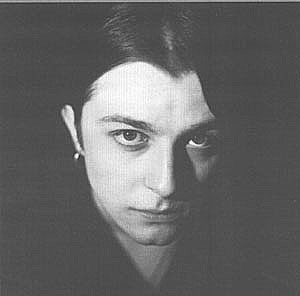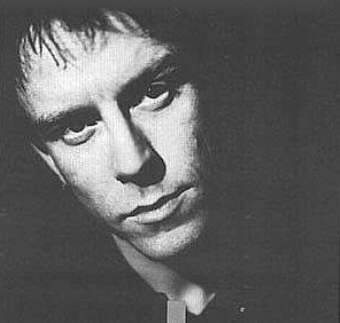#this doesn’t even talk about the maels’ personal lifestyles
Explore tagged Tumblr posts
Text
On Sparks and Asexuality.
National Crime Asexual Awareness Week last week seemed a pretty good excuse to ignore my other obligations and force myself to sit down and start writing the essay post I promised to you all back when I started my blog...
First, a brief bit of backstory on my relationship with this topic. I’m writing from my experience as a sex-repulsed, heteroromantic asexual, who, up until recently, had only ever met 3 other asexuals. Enter the Sparks fandom. I now know 6 asexual Sparks fans, if I’m counting myself! I realize there could be other factors at play regarding the demographics of Tumblr and Instagram users, but nevertheless, there seems to be a disproportionately large aspec population in this fandom. And so it begs the question: why are there so many asexual fans of this band? Or perhaps more specifically: why are there so many asexual fans of a band for which it’s a running joke that “every Sparks song is about sex”???
Despite the joke, sex songs hardly constitute the majority of Sparks’ music. Indeed, there are plenty of Sparks songs that aren’t remotely related to sex or love or relationships (185, if you’re counting, apparently), and I think this is a large part of why people on the ace spectrum seem to particularly enjoy Sparks. Especially for those who are aromantic, I’m sure it’s frustrating that love is the most-written-about subject in popular music, and refreshing to find songs outside of this norm. Personally I’ve never minded love songs since I can still relate to them, but even for me, romance and heartbreak haven’t been frequent experiences. Why listen to songs about those somewhat foreign topics when you could be listening to songs about Albert Einstein or lawnmowers or inadvertently buying the BBC?!
That’s not to say that Ron doesn’t like writing about relationships, because clearly he does—but he almost always defies the normal conventions of doing so. Frequently it seems that he writes from the perspective of an outsider, which I think is something that those of us on the ace spectrum can connect with strongly. In many songs, the narrator is the guy who never gets the girl (“Lots of Reasons”, “Ugly Guys with Beautiful Girls”, “Equator”, “Johnny Delusional”, etc.), often due to no fault of his own. If that doesn’t describe the asexual experience, I don’t know what does—there’s nothing ‘wrong’ with us, we still crave love though for some of us it may be platonic rather than romantic, but we’re rejected because we’re misunderstood. Songs about failed relationships are also prominent (“B.C.”, “Dick Around”, “Tits”, etc.), but they aren’t really about heartbreak; they might be written in the first person, but they aren’t personal. Again, this creates a sense of alienation that I think asexuals often feel regarding the whole subject of sex/love/romance/relationships. The relationships in the songs are just used as a means of telling a larger story, which the listener is watching from the outside—and that’s a very familiar place for me to be, constantly an observer to my friends’ relationship drama rather than a participant.
And then of course there’s the cynical view of love represented in “I Can’t Believe That You Would Fall for All the Crap in This Song”, and the ace/aro anthem “Eaten by the Monster of Love”... At the end of the day, I think most people find more meaning in songs that reflect their own lives, and for us ace folk, I think Ron’s approach to writing about relationships resonates with us more so than the depictions of relationships in mainstream music.
But in my opinion, there’s another reason that asexuals seem to be drawn to Sparks’ music, a reason that’s even more important than the things I’ve mentioned so far: the sex songs. Yeah, you read that right. Because maybe not every Sparks song is about sex, but... clearly Ron likes writing about sex, too, so I don’t think it’s something that can be overlooked, and while it may seem ironic on the surface, I think that the sex songs compel me, as an asexual, to enjoy Sparks MORE rather than less.
I don’t know if Ron intentionally tries to save his catchiest tunes for the sex songs or if it just works out that way, but I can’t deny that the likes of “Amateur Hour”, “Missionary Position”, and “Good Morning” are some of my favorites in the Sparks discography. And that drove me insane at first. I realize that sex is a normal and healthy and enjoyable thing for most people, but considering that I personally want no part of it, I still usually try to avoid sex in the media that I consume. I even attribute this as being one of the reasons why I prefer music from the 20th century over whatever my peers listen to, because back then songwriters typically relied on innuendo… innuendo is a lot less uncomfortable for me than the explicit sexual references that have become increasingly common in contemporary popular music, since it’s a lot easier to distance myself from it and thus frame sex in a more positive context, and at least I can appreciate a clever metaphor! And while the aforementioned Sparks songs have some of the best metaphors ever, they’re still VERY obviously about sex. Yet here I was, continuing to listen to these songs because for some reason, the fact that they were about sex wasn’t turning me off from them.
At first I figured that I was just able to overlook the lyrical content of these songs because the music was so infectious, and I’ve never been one to focus on lyrics much anyway. But the longer I listened to Sparks, the more I came to the realization that I also enjoyed the lyrics to these songs, precisely because they were about sex—because they put sex in a context that I’m able to comprehend. Much like the songs about relationships I mentioned earlier, Sparks’ sex songs seem more concerned with the larger story and social commentary of the situations they portray, the outside perspective, rather than with sexual desire or the physical aspects of the act of sex. I think Ron said it best himself in a 1977 interview: “I think there’s a slightly asexual sensibility… I take a more intellectual—as opposed to body approach to what I do.”
So Sparks’ sex songs may be blunt, but I don’t mind them since they’re not graphic, and I can actually understand them since the baffling notion of lust isn’t involved… and on top of that they’re downright funny. Asexuals may not be able to understand sexual desire, but we can certainly understand humor! Even if it is sexual in nature, and even if we’re sex-repulsed! And frankly I’d argue that the humor in question isn’t even all that sexual, it’s more down to Sparks’ penchant for subverting expectations. There’s something undeniably amusing about the plight of the guy who can’t remember anything about his one-night stand, or of the pubescent boy who naturally isn’t a pro when having sex for the first time, if only because these aren’t what you’d expect in your typical song about sex. And a sex song written from the point of view of the sperm, just wanting to fulfill their biological purpose, of all things!
In all of these scenarios, Sparks play around with the conception that sex is a Big Deal. Again, this puts sex on a level that I can comprehend—because I still have a hard time believing that anything about sex culture is actually genuine, that the way most allosexuals talk and brag about sex isn’t full of lies, that all of the confusing and elaborate and almost ritualistic social behaviors surrounding sex aren’t just frivolous. Sparks songs are so real, so objective, so human about sex… they don’t make it any less meaningful, but the humor and lightheartedness removes it from this weird exalted position that it seems to hold. What a pity that sex culture has trained us that this isn’t what we’re supposed to expect in a song about sex, because it’s an appropriate silliness with which to approach a topic that feels, to me, like a massive inside joke that I haven’t been let in on.
“Missionary Position” defies conventions too, because, as the lyrics say, “the acrobats, well they tend to scoff”—according to the confusing social rules, no one in their right mind would be singing the praises of unadventurous sex. This is one of those often-overlooked moments of sincerity in the Sparks catalogue that I say separates out the fans who truly get Sparks and the ones that don’t, because apparently some people think there’s a catch to this song. Why is being ‘vanilla’ considered a bad thing? This is clearly a healthy relationship and both partners are clearly happy, so why do they need to be doing anything differently? This song’s take on sex is so overwhelmingly positive and down-to-earth that I can only describe it as ‘wholesome’. A round of applause for you, Mael bros, you’ve just made a sex-repulsed asexual describe sex portrayal in media as ‘wholesome’.
“All You Ever Think About Is Sex” is a particularly interesting one to me. If you take it at face value, it’s humorous: both the outrageous situations that the narrator and his partner find themselves in, and the plot-twist that the narrator doesn’t mind that their relationship is solely based around sex (because even allosexuals seem to think that this isn’t very meaningful). However, I’ve always interpreted this song as being EXTREMELY satirical. While the narrator is alright with having a purely physical relationship (or at least says he is), I doubt the author agrees, because the lines “In a world of lovers, we don’t love each other much / Fact is, we’re too busy to love each other much” suggest that ‘making love’ isn’t love at all—a sentiment which is echoed in “More Than a Sex Machine”. Asexuals are well aware that love/romance and sexual attraction aren’t the same thing and don’t necessarily coexist, but allos seem to have a hard time grasping this. To see this view expressed in pop music is validating, to say the least! What’s also cool about this song is that depending on how far you want to read into the satire, either the narrator and his partner agree that they just want a casual relationship; there’s no criticism because there are no expectations beyond this, and sex is treated as a very mundane thing… or the line “Alright with me” is ironic; the narrator is disillusioned because sex is the most important thing in his relationship, and it isn’t the love he was looking for. Either way, it implies that sex shouldn’t be as hyped-up as it is.
There are obviously more songs I could analyze, but this has already been an over-long answer to get my point across: the way that Sparks discuss sex in their songs—an intellectual discussion, poking fun at the seriousness and importance with which society regards sex, emphasizing the need for an emotional connection in a loving relationship—attracts me and likely other asexuals to their music because it’s relatable for us. I may love songs like “Come On Eileen” for the melody but I’ll never be able to fully understand the lyrics, whereas with Sparks I can enjoy the songs for 100% of their worth.
#I deserve to be slapped for my terrible puns#still trying not to yell to literally everyone about that ron quote#this doesn’t even talk about the maels’ personal lifestyles#which could be an entire post of its own#but it’d be based mostly on speculation so I’d feel bad for writing it#asexuality#my posts/additions
45 notes
·
View notes
Photo





SUEDE: Style & Substances
Alternative Press, May 1997 (no. 106). Mag cover. Written by Dave Thompson. Archived here.
Suede Give Us A Glimmer...
Bleeding through the debate about vocalist Brett Anderson's sexuality and rumored drug intake, the overall glamour with which society equates a fucked-up lifestyle drapes Suede like a second skin. Dave Thompson travels to London to discover why Suede are one of the few bands that matter in an age of stars who are "just like you."
Brett Anderson leans against an amplifier, hands in pocket, shoulders hunched. To his left, the rest of Suede are playing Fleetwood Mac's "Albatross"; to his right, a television crew is fiddling with camera angles. He wants a cigarette, but he never smokes this close to showtime. Instead, he swings a keychain and glowers into the monitors. It's rehearsal time in Studio Four, a theater-sized room as the BBC, and the only person who's enjoying himself is an increasingly rotund-looking Jools Holland. He's the host of this evening's show, and he's away in another room entirely.
Later...With Jools Holland is a British TV institution. Less than three years old, it has nevertheless sewn up a comfortable niche somewhere between the chart-conscious grooviness of Top of the Pops and the more indulgent pastures of MTV Unplugged. It's a showcase for bands to run through a handful of new songs, play a favorite or two and give a taste of their live prowess without boring the unconverted senseless. Boring themselves senseless, of course, is another matter entirely, and as Suede are counted into the third rehearsal of their opening song "Trash," you can almost sense the desperation in Anderson's face. Then the action starts, and he's utterly transformed. Though he's barely moving and scarcely singing, he's conveying an intensity that explodes from his very presence, drawing the most disinterested eyes in his direction. Even the soundmen look up from their meters, and the camera crew compete for his undying attention. If Anderson weren't a rock star, he'd make a great lunatic. But because he is a rock star...well, he's probably a lunatic anyway. You would be, too, in his shoes. If the 1990s have given us anything, it's the demystification of the rock star. From the boy-next-door Weezers to the angst-ridden whiners, the message is the same: I'm no different from you; I'm no better than you; and, of course, I'm just as screwed up as you. Enter, or more properly, re-enter Suede, with their third album, Coming Up (Columbia). And all that hard work reducing idols to idiots counts for nothing. Because Suede couldn't be "just like you" even if they wanted to. Bleeding through the "is he?/isn't he?" debate about vocalist Brett Anderson's sexuality and the "does he?/doesn't he?" of his rumored drug intake, the overall glamour with which society equates a fucked-up lifestyle drapes Suede like a second skin. The scent of teen spirit clings to them, the doomed romanticism of consumptive youth which peaked on their last album, 1994's Dog Man Star, and peeks through the stunning Coming Up. Suede deal in emotional extremes, from the A Clockwork Orange apocalypse of their "We Are The Pigs" video in which armed hooligans howl through a burning industrial landscape while Suede gaze down from giant video screens, to the incandescent loneliness of the current "Saturday Night" video, in which a London subway station is transformed into a rave to which the band have not been invited. The band's junkie chic is as apparent in the stoned immaculate presentation of their latest wasted-youth album-cover artwork, as it is in the gorgeously gaunt frame which Anderson angles for the television cameras. Add a live show that oozes subversive glamour; couple that with the fearless decadence of Anderson's greatest lyrics, and whether it's all an act or not, Suede are a walking advertisement for the joyful sins of sleaze. Backstage in the bowels of the BBC, Anderson sighs. He's heard all this before. "Yeah, you can look at it like that, but that's other people's interpretation of it, and that's their problem. You can't look at yourself through other people's eyes, then worry about what you say through their ears; you've got to have some self-belief in what you are." Which is, right now, the biggest thing on 10 legs. Across Europe and the Far East, Coming Up charted at No.1 and has already outsold both its predecessors. Three singles have kept the pot boiling ever since, and the current Suede line-up (their fifth on record since their 1990 "Be My God" 7-inch single debut) is their strongest yet. Like Brian Eno's departure from Roxy Music, founding guitarist Bernard Butler's exit did not so much rid the band of one creative spark, as open the door for the flowering of another. Anderson's unequivocal grasping of the reins, only partly aided by the recruitment of guitarist Richard Oakes, may have diluted Suede's overall sound, but it has sharpened their vision to a razor's edge. The further addition of keyboardist Neil Codling fills the gaps that teen maestro Oakes couldn't plug; the Simon Gilbert/Mat Osman rhythm section is a thunderous roar that never lets up; and Coming Up is unmistakably the sound of the same great band that recorded Dog Man Star. The difference is, Anderson affirms, they've stopped pissing around. "After Dog Man Star, everyone thought we were going to do an operetta or something like that. But you get things out of your system. We wanted to refocus the band, the fact that we were virtually starting again; we wanted to readjust the basics." And did it work? "You can't completely divorce yourself from your past. I haven't got the memory of a goldfish; I was aware that I'd made two albums before it. But it felt fresh, and it felt as though we were making the record away from a lot of the crap you have to deal with, away from the spotlight, which was great. Plus...", and here he gestures to new arrivals Codling and Oakes, "... there's less of an obsession with self-importance, which was definitely a change in the band. The last two albums were quite precious and self-important, and that can be good and that can be bad." Ah, preciousness. Plough through five years of Suede press and the buzzwords leap out: "superficial", "fake", "David Bowie" - three hollow sides to the same soulless coin. But most of the people who call Suede "pretentious" are the same ones who fancy the Spice Girls. And the closest those cynics get to class is the corridor outside the school room. "It does bother us a bit," says Anderson. "People always want to polarize bands into camps, and what I always find objectionable, even with journalists who are pro-Suede, is, they always want to write about us as an alternative to this good, honest musicianship going on elsewhere, which kind of implies that there isn't any good, honest musicianship going on within Suede." Anderson resents that implication, just as he resents the accusations of vanity that are flung at him with equal frequency - the two go hand in hand, after all. "People ask, 'Are you vain?' Hang on, let me turn the question around. If you were going to appear on television in front of five million people, you'd probably look in a mirror to see what you look like. You'll brush your hair and put a bit of make-up on because you don't want to look like a pig. Does that mean you're vain? I don't think it does. "Ninety-nine percent of my career thought is dedicated to thinking about music; a very tiny percentage is spent on image. I may go shopping once a month; but while I don't think we're the honest blokes down the pub, we're not kooky weirdos either. We're just what we are." A decent image, though, is still worth a thousand songs (ask Marilyn Manson), and if it's not their Englishness that holds Suede back in the U.S., then it has to be their appearance. They look weird. Catch the "Beautiful Ones" video: Codling apes the same abstracted pose of diffidence and boredom that once made a star of Sparks' Ron Mael; and Osman and Oakes look like they're trying to extinguish a particularly persistent cigarette end. Their singer is fey. Imagine Bryan Ferry if a stick insect stole his trousers. Their music is arty. And they come on like they're somehow special, so special that America poses little interest or challenge to Suede. Other bands make no secret of their desire to crack the country, nor do they hide their disgust when they fail. Suede, though, never seemed bothered. Past U.S. tours (three so far) have been languid affairs, barely publicized flirtations which almost gratefully acknowledge that as far as most people are concerned, Suede might as well be a lesbian performing artist. Anderson dictates the band's Stateside manifesto: "I don't give a shit." "Don't get me wrong: please don't portray us as some sort of anti-American thing, because we're not. But as far as America is concerned, you can talk about airplay and videos, but all it really boils down to is the fact that America doesn't like Suede. And I'm not going to knock it, if they don't like it, they don't like it." And what don't they like? Kurt Cobain had a tummy ache, and a nation felt his pain. Trent Reznor's dog died, and a nation held his hand. Brett Anderson wrote songs about holes in your arm ("The Living Dead") and pantomime horses ("Pantomime Horse"); he equates love with flyaway litter ("Trash"), and he's never been in rehab. "I hate that rehab shit! That's one place where America get really suckered, with those rehab rock bands. Let me explain what going into rehab means. It means you're cool because you used to do drugs, but now you're a good lad, and you're really '90s, so you want to give them up. But it's a complete excuse, and anybody who says it or does it is a complete careerist. I don't think the public shoulg go out and buy records by people whose record companies have told them to say they're going into rehab. You want to talk about fakes and falseness in the music business; I think this rehab rock thing is such a lot of dog shit." So you don't just say no? "I can't sit here and honestly say that drugs are bad for you, because I don't believe that, and I don't think anybody with a brain believes that." He elaborates: "Smoking a bit of pot and taking a bit of LSD can open a few barriers in your mind, although I certainly don't think taking smack, taking coke or taking crack does anything. I know I've taken drugs before and looked back on it and said, 'That's fucking crap; you should have got your act together and stopped taking them.' They just numb you and turn you into a wrong-thinking fucking idiot. "But that's the whole problem with drugs, isn't it? You can't say 'drugs' because there's so many different factes to it. 'It's an aid to creativity.' Well, some of it is, and some of it isn't. You can't paint everything with one brush." As for the veneer of glamour which Suede's own observations convey, the danger that, to quote the new album's "The Chemistry Between Us," "we are young and easily led," Anderson remains equally adamant. "There's no point in trying to filter things like 'Don't talk about this, don't talk about that.' Lots of times when I'm talking about drugs, I'm talking in a pedestrian context. I'm not trying to make it into a big deal; I talk about it like I'd talk about anything else that's in this room." And though he agrees there is a moral question, he also believes it's impossible to do much about it. "The only way you can set yourself up as something moral is in the broader sense, by not treating music as this completely throwaway, meaningless thing, and not treating the sentiments expressed in the music as completely throwaway, meaningless things. "That's where I see my position morally, someone who can write a love song and actually bring a degree of warmth to someone else. You can't act as censor in your words; you just have to be positive about what you're doing and see that making records that people love, that people cling to, and that help people through sticky patches in their lives is, at the end of the day, a positive thing to do. There's very few things I think that are positive in the world, but music is one of them." And that is that. In an age when a star is only as big as his last three videos, and most stars are as interesting as a line at the post office, Suede are three albums into a career that means more to more people than any of the bickering of Suede's petty, wormwood competitors; and certainly far more than the bitter, twisted harping of their detractors. Stars shine, shit stinks, and the lowest common denominator is nothing to be proud of. No one really wants to watch Hootie feed his blowfish, but Brett Anderson spends "Saturday Night" moping around on a subway train, and it's the best thing on MTV this year. Who cares what else he gets up to? Turning as he heads for the soundstage, Anderson won't be drawn. "My drugs of choice are ginseng and chamomile tea, but don't worry. I'm going into rehab soon."
#brett anderson#mat osman#simon gilbert#richard oakes#neil codling#suede#coming up month#coming up era
43 notes
·
View notes